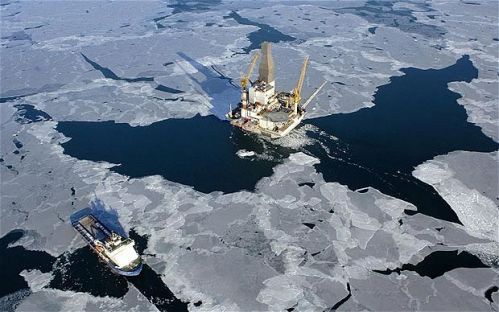Sanctions on Russia May Restrain Global Oil Supply
Posted: 09/16/2014 03:09:42 Edited: 09/16/2014 03:09:42 Clicks: 2553
Tony Hayward, the former CEO of BP warned that the sanctions of the U.S. and EU on Russia may restrain global oil supply and raising oil price, damaging the Western in return.
Tony Hayward states that prohibiting Russian energy groups entering into capital market and limiting them to receive oil technologies from the Western will result Russian investments on oil production decreasing, thus damaging long-term supply. He says that prosperous shale oil and gas in the U.S. cove the growing risks of insufficient global oil supply. The prosperity will fade away and the dangerous zone of global economy will be exposed by the risks that oil supply may be cut off.
On September 12, both the U.S. and EU enhanced sanctions on Russia. Among that, the U.S. ranked Gazprom, the main energy supplier for Europe and Lukoil, private oil group into sanction list to prohibit them using goods, technologies and services from the U.S. to exploit oil in deepwater or the Arctic Ocean and develop shale oil program. EU and the U.S. also imposed restriction on financing of some Russian own-stated energy groups.
When Tony Hayward was interviewed, he said, “American situation makes the whole world produce a kind of false sense of security.” He pointed out that the prosperity of shale oil had promoted American oil output to increase by 60% sharply since 2008. But he asked, “Where dose the new supply come from, when American oil supply falls back after reaching the peak?”
With oil output in mature oilfields falling, the world hopes that Canada, Iraq and Russian can increase oil supply. However, Tony Hayward shows that Russian undeveloped resources in the Arctic Pole and exploitation of shale oil reserves in Siberia are faced with threats. “Due to sanctions on finance, those large groups will cut down their activities.” He said.
Tony Hayward states that prohibiting Russian energy groups entering into capital market and limiting them to receive oil technologies from the Western will result Russian investments on oil production decreasing, thus damaging long-term supply. He says that prosperous shale oil and gas in the U.S. cove the growing risks of insufficient global oil supply. The prosperity will fade away and the dangerous zone of global economy will be exposed by the risks that oil supply may be cut off.
On September 12, both the U.S. and EU enhanced sanctions on Russia. Among that, the U.S. ranked Gazprom, the main energy supplier for Europe and Lukoil, private oil group into sanction list to prohibit them using goods, technologies and services from the U.S. to exploit oil in deepwater or the Arctic Ocean and develop shale oil program. EU and the U.S. also imposed restriction on financing of some Russian own-stated energy groups.
When Tony Hayward was interviewed, he said, “American situation makes the whole world produce a kind of false sense of security.” He pointed out that the prosperity of shale oil had promoted American oil output to increase by 60% sharply since 2008. But he asked, “Where dose the new supply come from, when American oil supply falls back after reaching the peak?”
With oil output in mature oilfields falling, the world hopes that Canada, Iraq and Russian can increase oil supply. However, Tony Hayward shows that Russian undeveloped resources in the Arctic Pole and exploitation of shale oil reserves in Siberia are faced with threats. “Due to sanctions on finance, those large groups will cut down their activities.” He said.

